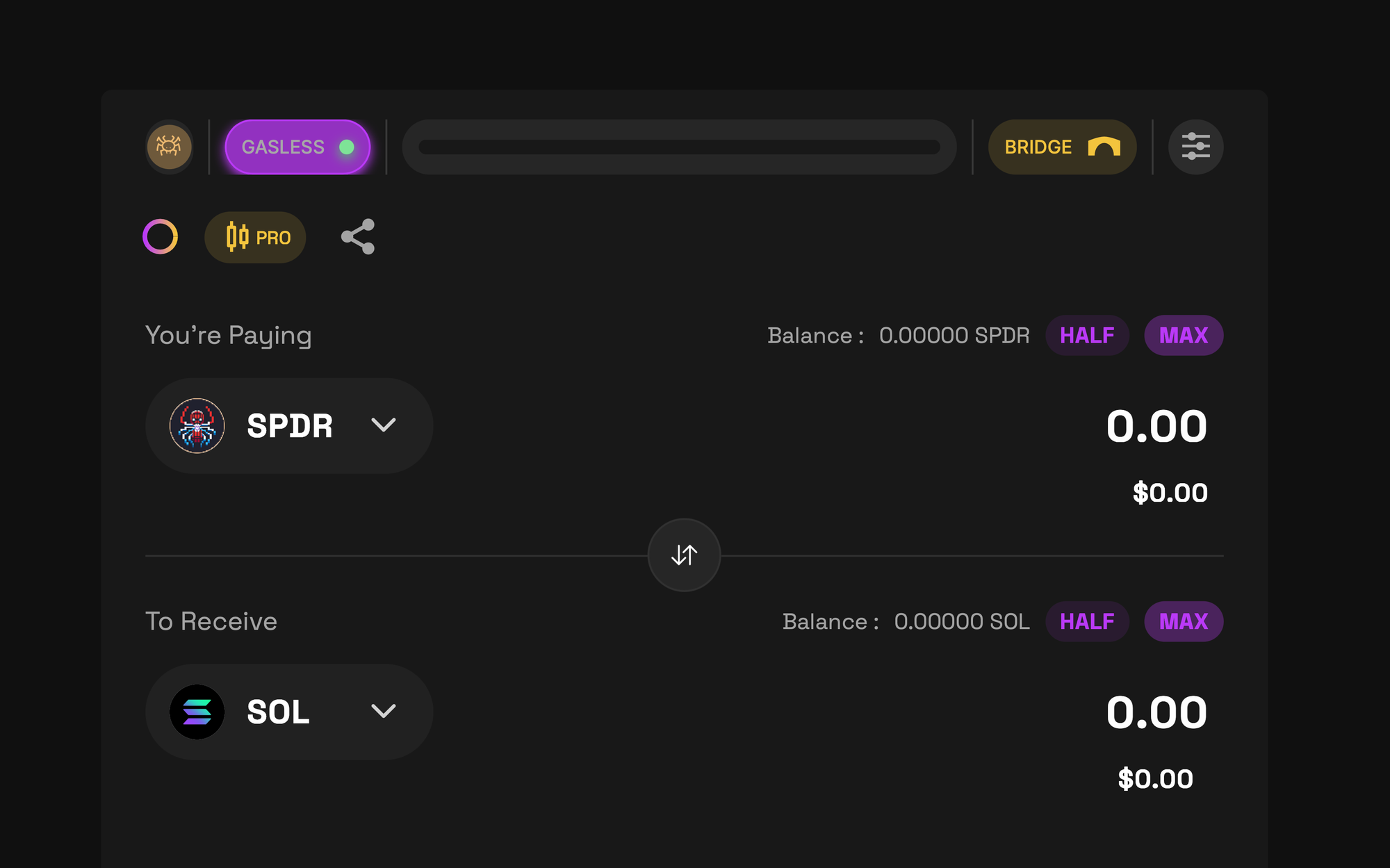Gasless Swaps
Revolutionary Carbium tool that enables $SOL free DeFi interactions.
Overview
Gasless Swaps enable users to execute on-chain transactions without needing to hold the network's native token (e.g., $SOL on Solana) to pay for transaction fees. This feature removes a significant friction point for onboarding and interacting with decentralized applications (dApps).
The Problem: The $SOL Barrier
On the Solana network, every transaction requires a network fee, or "gas," which must be paid in $SOL. This creates a critical barrier for users:
- New Users: A user who receives a non-SOL token (like USDC or BONK) cannot swap, send, or otherwise use that token until they first acquire $SOL from an external source (like a centralized exchange).
- Systemic Friction: This prerequisite adds a complex and frustrating step to the onboarding process for new dApp, DeFi, or gaming users, hindering mainstream adoption.
Carbium's Gasless infrastructure solves this at the protocol layer.
How Gasless Swaps Work in Practice
Instead of requiring the user to pay the network fee, Carbium's system temporarily covers the $SOL fee for the user's transaction.
- Fee Advancement: When a user initiates a swap, Carbium advances the required $SOL fee from a managed fee pool.
- Transaction Settlement: The transaction is signed and settles on-chain as normal, without the user's wallet ever being charged for gas.
- Pool Replenishment: To keep the fee pool self-sustaining, a small, automatically calculated offset is adjusted on the output side of the user's swap.
This process is seamless to the end-user, who simply experiences an instant token swap without any $SOL dependency.
How do I swap tokens on Solana without paying gas?
A single gasless trade follows this internal process:
- Sign: The user selects the input and output tokens for their swap and signs the transaction.
- Advance Fee: The Carbium system pays the $SOL transaction fee from its internal fee pool.
- Process: The transaction is processed through Carbium's low-latency infrastructure.
- Complete: The swap executes. A micro-adjustment is made to the swap's output to rebalance the fee pool.
flowchart LR
subgraph UserSide[User Side]
U[User wallet]
UI[Carbium app UI]
end
subgraph CarbiumCore[Carbium Gasless Core]
GR[Gasless router<br>and swap handler]
FP[SOL fee pool vault]
AGG[Aggregator route engine]
end
subgraph SolanaSide[Solana network]
AMM[AMM route<br>Orca, Raydium, Meteora, etc]
VAL[Carbium validator<br>and RPC]
end
%% User flow
U --> UI
UI --> GR
%% Routing and fee logic
GR --> FP:::fee
GR --> AGG
AGG --> AMM
AMM --> VAL
%% Fee payment and confirmation
FP --> VAL:::fee
VAL --> GR
%% Final settlement
GR --> U_OUT[User wallet receives<br>output tokens]
classDef fee fill:#f4c43c22,stroke:#f4c43c,stroke-width:1px;
Use Cases & Benefits
Gasless infrastructure provides benefits across the ecosystem:
- New Users: Can immediately access DeFi and dApps. They can arrive with any token (e.g., USDC) and begin transacting without the initial hurdle of acquiring $SOL.
- Developers & dApps: Can integrate the Carbium API to offer a seamless trading or staking experience within their own interfaces, abstracting away fee management from their users.
- High-Traffic Projects: Gaming platforms or high-volume dApps can operate fully on-chain using their native tokens, while Carbium handles the fee complexity in the background.
- Power Users: Automated scripts, high-frequency traders, or users running bulk operations no longer need to pre-fund wallets with $SOL for every transaction.
Developer Integration
This Gasless Swap functionality is available for integration via the Carbium API. By integrating our endpoints, you can enable gasless transactions directly within your application, game, or platform.
Updated about 2 months ago

